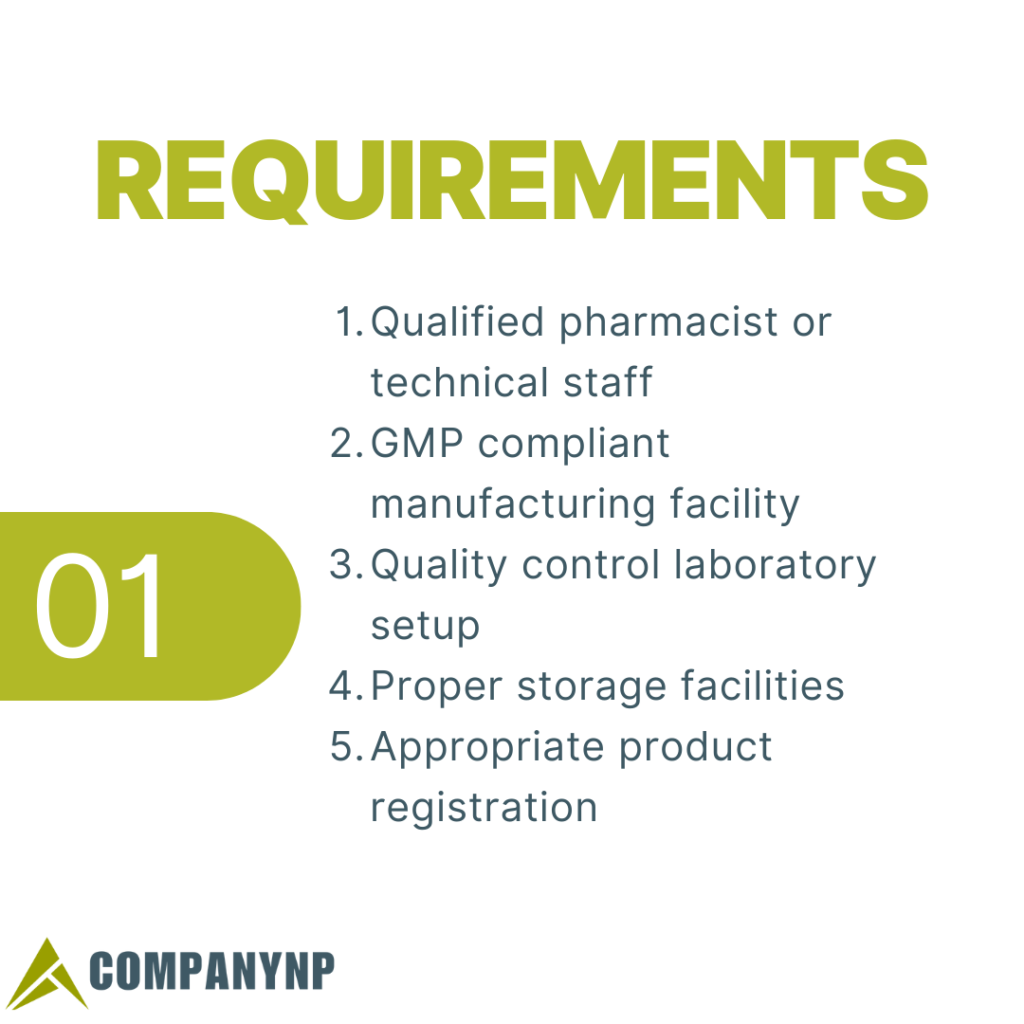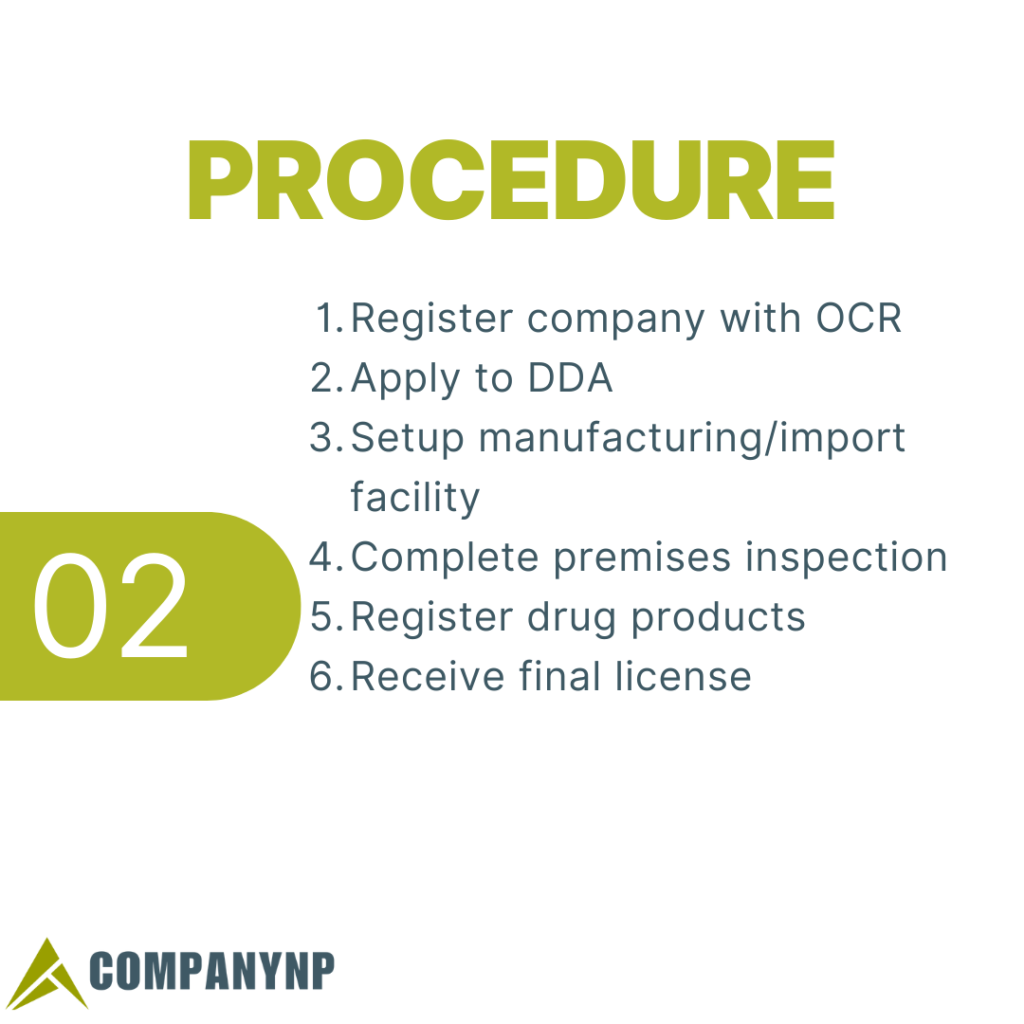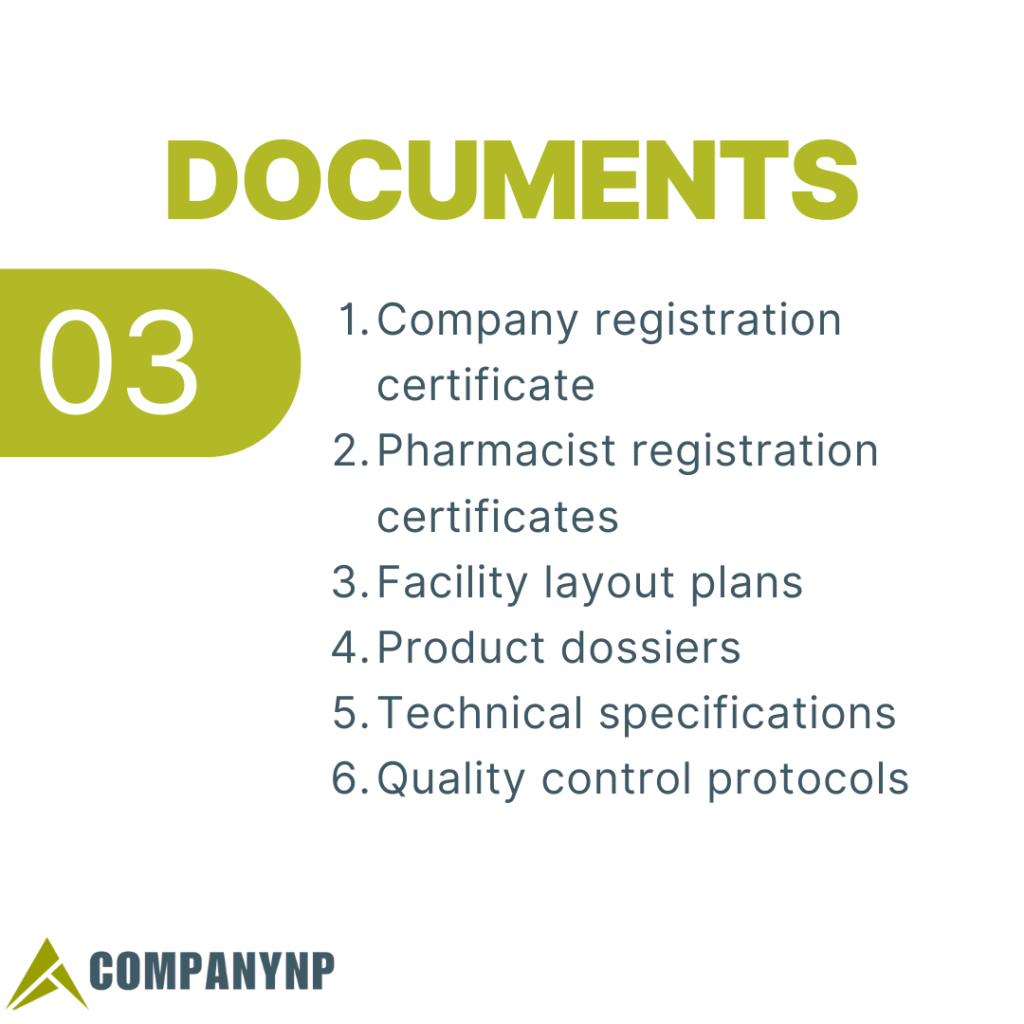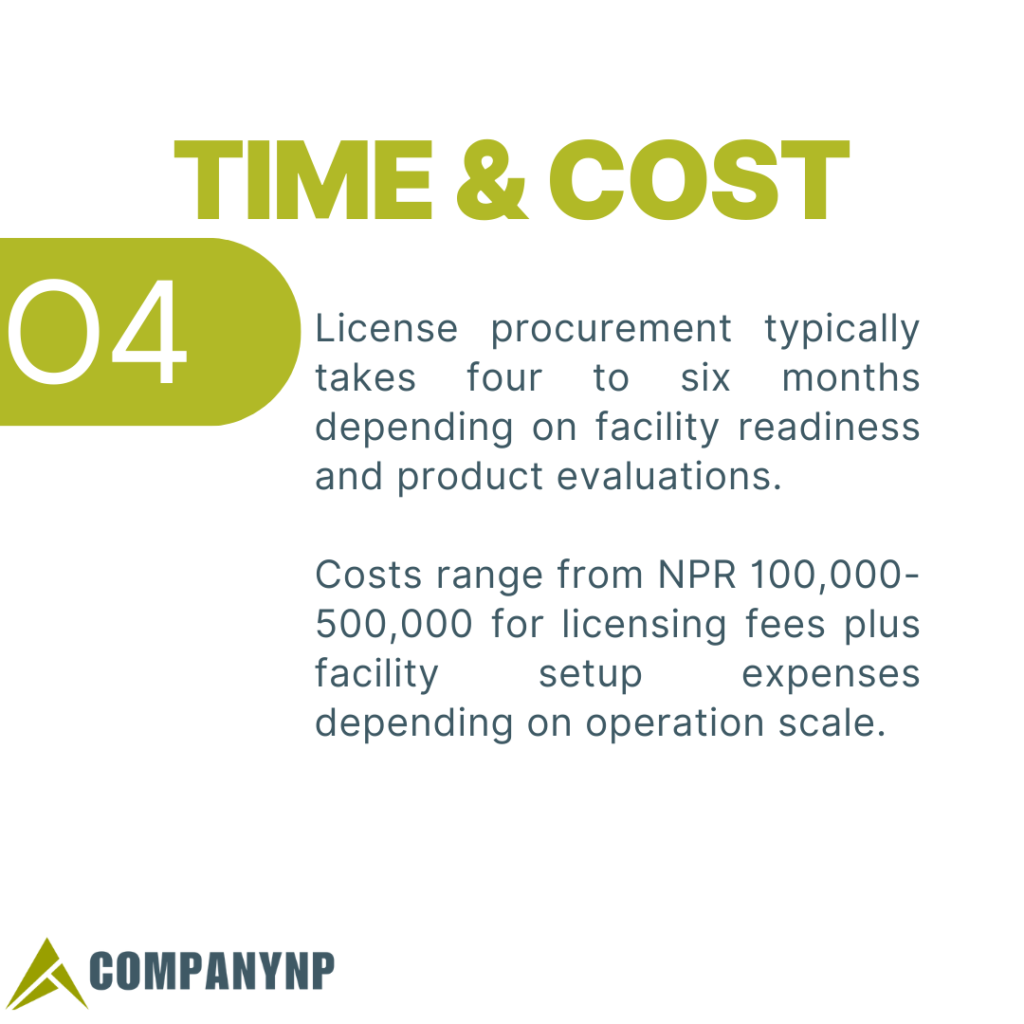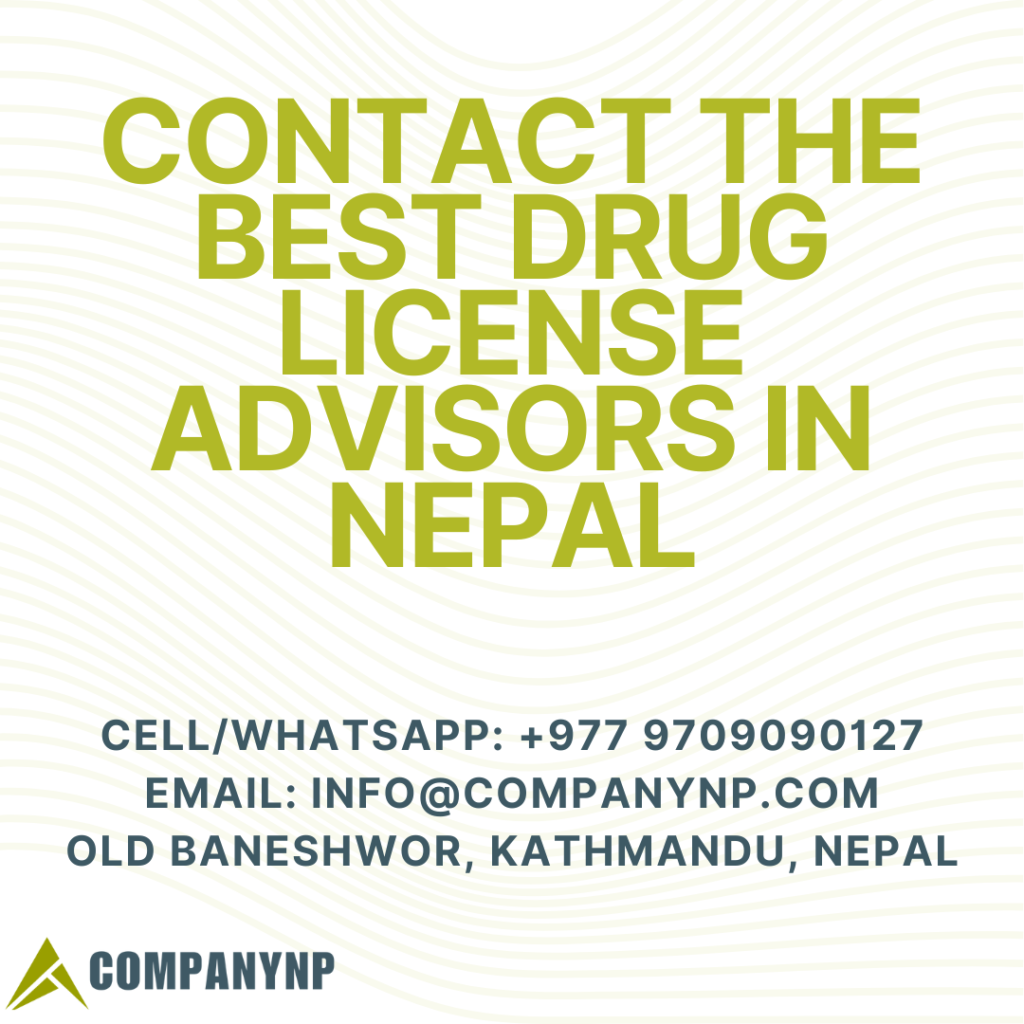What is a Drug License in Nepal?
A drug license in Nepal is an official permit issued by the government that allows individuals or companies to engage in various activities related to pharmaceuticals. This includes manufacturing, importing, exporting, distributing, and selling drugs within the country. The license ensures that all drug-related operations comply with national regulations and safety standards.
The primary purpose of a drug license is to:
- Ensure drug quality and safety
- Regulate pharmaceutical activities
- Protect public health
- Prevent the sale of counterfeit or substandard medications
- Maintain proper documentation of drug-related businesses
A drug license is mandatory for anyone involved in the pharmaceutical industry in Nepal, from manufacturers to retailers. It serves as proof that the holder has met all necessary requirements and is authorized to operate in the field.
Which Authority Issues Drug Licenses in Nepal?
The Department of Drug Administration (DDA) is the primary authority responsible for issuing drug licenses in Nepal. Operating under the Ministry of Health and Population, the DDA plays a crucial role in regulating the pharmaceutical sector.
Key responsibilities of the DDA include:
- Issuing drug licenses
- Inspecting pharmaceutical facilities
- Monitoring drug quality
- Enforcing drug-related laws and regulations
- Providing guidelines for the pharmaceutical industry
- Conducting research on drug safety and efficacy
The DDA works closely with other government agencies and industry stakeholders to ensure a comprehensive approach to drug regulation. Its main office is located in Kathmandu, with regional offices in other major cities to facilitate the licensing process across the country.
What Laws Govern Drug Licensing in Nepal?
Drug licensing in Nepal is governed by a set of laws and regulations that ensure the safety, quality, and efficacy of pharmaceuticals. The primary legislation is the Drugs Act, 2035 (1978), which provides the legal framework for drug regulation in the country.
Other important laws and regulations include:
- Drug Registration Regulation, 2038 (1981)
- National Drug Policy, 2051 (1995)
- Drug Standard Regulation, 2043 (1986)
- Codes on Drug Manufacturing, 2041 (1984)
- Pharmacy Council Act, 2057 (2000)
These laws cover various aspects of drug licensing, including:
- Requirements for drug registration
- Good Manufacturing Practices (GMP)
- Quality control standards
- Labeling and packaging regulations
- Penalties for non-compliance
Understanding these laws is crucial for anyone seeking a drug license in Nepal, as compliance is a key factor in the approval process.
What is the Process for Obtaining a Drug License?
The process for obtaining a drug license in Nepal involves several steps and requires careful preparation. Here’s a detailed guide to help you navigate the procedure:
- Determine the type of license: Identify the specific type of drug license you need based on your intended activities (e.g., manufacturing, importing, retail).
- Gather required documents: Collect all necessary documents, including business registration, educational qualifications, and technical specifications.
- Submit application: File your application with the Department of Drug Administration (DDA), along with the required documents and fees.
- Initial screening: The DDA will review your application to ensure all required information is provided and meets basic criteria.
- Facility inspection: For manufacturing or storage facilities, the DDA will conduct an on-site inspection to verify compliance with Good Manufacturing Practices (GMP) and other relevant standards.
- Document verification: The DDA will thoroughly examine all submitted documents, including product dossiers and quality control procedures.
- Technical committee review: A specialized committee will evaluate the technical aspects of your application, particularly for new drug registrations.
Throughout this process, you may be asked to provide additional information or make necessary improvements to your facilities or procedures. It’s important to respond promptly to any requests from the DDA to avoid delays in the licensing process.
Read More:
Import Export Code Registration Process in Nepal
Memorandum of Association Amendment Process in Nepal
Annual General Meeting Process in Nepal
Once all requirements are met and the DDA is satisfied with your application, they will issue the drug license. The entire process can take several months, depending on the type of license and the completeness of your application.
Remember that obtaining a drug license is just the first step. You’ll need to maintain compliance with all regulations and renew your license periodically to continue operating legally in Nepal’s pharmaceutical sector.
What Documents are Required for the License Application?
Preparing a complete and accurate set of documents is crucial for a successful drug license application in Nepal. The specific requirements may vary depending on the type of license you’re applying for, but here’s a general list of documents typically needed:
- Application form: Obtain and fill out the official application form from the DDA.
- Business registration: Provide proof of company registration, such as a certificate from the Office of Company Registrar.
- Educational qualifications: Submit certificates of relevant educational qualifications for key personnel.
- Technical documents: Include detailed information about products, manufacturing processes, and quality control procedures.
- Premises layout: Provide architectural plans of your facility, showing different areas and their purposes.
- Equipment list: Submit an inventory of all machinery and equipment used in drug-related activities.
- Personnel details: Include information about key staff members, their qualifications, and roles.
For specific license types, additional documents may be required:
- For manufacturers: GMP certificate, batch manufacturing records, stability data
- For importers: Authorization letter from the foreign manufacturer, Certificate of Pharmaceutical Product (CPP)
- For retailers: Proof of qualified pharmacist employment, store layout plans
Ensure all documents are current, properly certified, and translated into Nepali or English if originally in another language. Submitting a complete set of documents can significantly speed up the licensing process.
How Long Does the Drug Licensing Process Take?
The duration of the drug licensing process in Nepal can vary significantly depending on several factors. While there’s no fixed timeline, understanding the typical duration can help you plan your business activities accordingly.
On average, the process can take:
- For retail licenses: 1-3 months
- For wholesale licenses: 2-4 months
- For import licenses: 3-6 months
- For manufacturing licenses: 6-12 months or more
Factors that can affect the timeline include:
- Completeness of your application
- Type of license sought
- Complexity of your products or processes
- Current workload of the DDA
- Any required facility modifications or improvements
To help expedite the process:
- Ensure your application is complete and accurate
- Respond promptly to any DDA requests
- Be prepared for inspections
- Follow up regularly on your application status
Remember, rushing through the process isn’t advisable, as thoroughness is crucial for ensuring public safety and regulatory compliance. The DDA prioritizes careful evaluation over speed.
What are the Costs of Obtaining a Drug License?
The costs associated with obtaining a drug license in Nepal can vary widely depending on the type of license and the scale of your operation. Here’s a breakdown of the main expenses you might encounter:
- Application fees: These are set by the DDA and can range from a few thousand to tens of thousands of Nepali Rupees, depending on the license type.
- Inspection fees: For on-site inspections, you may need to cover travel and accommodation costs for DDA officials.
- Document preparation: Costs for obtaining, translating, and certifying required documents can add up.
- Facility setup: If you’re establishing a new facility, costs can be substantial, including construction, equipment, and meeting GMP standards.
- Professional fees: You may need to hire consultants or lawyers to assist with the application process.
- Testing fees: Product testing and quality control procedures can incur additional costs.
- Training: Ensuring staff are properly trained in compliance and safety procedures is another expense to consider.
While exact figures aren’t provided here due to potential fluctuations, it’s important to budget carefully and consider both immediate and ongoing costs associated with maintaining your drug license.
What are Post-License Requirements for Drug Businesses?
Obtaining a drug license is just the beginning of your responsibilities as a pharmaceutical business in Nepal. Post-license requirements are crucial for maintaining compliance and ensuring continued operation. Here are some key ongoing obligations:
- Annual renewals: Most drug licenses in Nepal require yearly renewal. This involves submitting an application and paying a fee to the DDA.
- Regular inspections: Be prepared for periodic inspections by DDA officials to ensure ongoing compliance with regulations.
- Record keeping: Maintain detailed records of all drug-related activities, including purchases, sales, and quality control measures.
- Pharmacovigilance: Report any adverse drug reactions or quality issues to the DDA promptly.
- Staff training: Ensure all employees receive regular training on Good Manufacturing Practices (GMP) and other relevant standards.
- Facility maintenance: Keep your premises and equipment in good condition, meeting all sanitary and safety requirements.
- Product updates: Inform the DDA of any changes to your products, including formulation or packaging alterations.
Failing to meet these post-license requirements can result in penalties, including fines or license suspension. Stay proactive in your compliance efforts to avoid issues and maintain a good standing with regulatory authorities.
What Types of Drug Licenses are Available?
Nepal offers several types of drug licenses to cater to different aspects of the pharmaceutical industry. Understanding these options is crucial for choosing the right license for your business activities. Here are the main types of drug licenses available:
- Manufacturing License: For companies producing drugs within Nepal.
- Import License: Required for businesses bringing pharmaceutical products into the country.
- Export License: Necessary for companies exporting drugs from Nepal.
- Wholesale License: For distributing drugs to retailers or other wholesalers.
- Retail License: For pharmacies and drugstores selling directly to consumers.
- Specialized Product Licenses: For specific categories like vaccines or controlled substances.
- Clinical Trial License: For organizations conducting pharmaceutical research.
Each license type has its own set of requirements and regulations. Some businesses may need multiple licenses depending on their activities. For example, a company that manufactures and exports drugs would need both a manufacturing and an export license.
When applying, carefully consider your current and future business plans to ensure you obtain the most appropriate license(s) for your operations.
What are the Benefits of Having a Drug License?
Obtaining a drug license in Nepal offers numerous advantages for businesses operating in the pharmaceutical sector. These benefits extend beyond mere legal compliance and can significantly impact your business’s success and reputation. Here are some key advantages:
- Legal operation: A license allows you to conduct pharmaceutical activities legally, avoiding penalties and closure risks.
- Market access: Licensed businesses can participate in government tenders and access broader market opportunities.
- Credibility: A license enhances your reputation among customers, partners, and investors.
- Quality assurance: The licensing process ensures your products and processes meet national standards, benefiting public health.
- International recognition: Some licenses can facilitate export opportunities by demonstrating compliance with global standards.
- Knowledge and improvement: The licensing process often leads to improved understanding and implementation of best practices in the pharmaceutical industry.
- Networking opportunities: Licensed businesses can join industry associations and participate in government consultations, expanding their professional network.
By maintaining a valid drug license, you not only comply with legal requirements but also position your business for growth and success in Nepal’s pharmaceutical market.
How to get a pharmacy license in Nepal?
1. Apply to the Department of Drug Administration (DDA).
2. Submit required documents, including proof of the pharmacy location, ownership details, and qualifications of the pharmacist.
3. Ensure compliance with health and safety regulations.
Pay the application fee.
4. Complete a site inspection by DDA representatives.
5. Upon approval, receive the pharmacy license.
How does drug licensing work?
1. Drug laws in Nepal are regulated under the Drug Act, 1978, and the Drug Regulation, 1995.
2. All drugs must be registered with the Department of Drug Administration (DDA).
3. Importation, production, and distribution of drugs require a valid license.
4. Strict guidelines exist for labeling, advertising, and sale of drugs.
5. Drugs must meet safety, efficacy, and quality standards as outlined by DDA.
How to register a pharmaceutical company in Nepal?
1. Choose a suitable name for the pharmaceutical company and reserve it with the Office of the Company Registrar (OCR).
2. Submit required documents, including the Articles and Memorandum of Association and details of shareholders and directors.
3. Obtain necessary licenses from the Department of Drug Administration (DDA).
4. Register the company for VAT (if applicable) and obtain a PAN number.
5. Pay the registration fees and complete any inspections required by DDA.
What is the process of new drug registration?
1. Submit an application to the Department of Drug Administration (DDA) with comprehensive details about the new drug.
2. Provide data on the drug’s composition, manufacturing process, clinical trials, and safety data.
3. The DDA reviews the application to ensure compliance with health and safety standards.
4. If the drug meets all requirements, DDA approves the registration.
5. Upon approval, the drug is officially registered for sale and distribution in Nepal.
Contents
- 1 What is a Drug License in Nepal?
- 2 Which Authority Issues Drug Licenses in Nepal?
- 3 What Laws Govern Drug Licensing in Nepal?
- 4 What is the Process for Obtaining a Drug License?
- 5 What Documents are Required for the License Application?
- 6 How Long Does the Drug Licensing Process Take?
- 7 What are the Costs of Obtaining a Drug License?
- 8 What are Post-License Requirements for Drug Businesses?
- 9 What Types of Drug Licenses are Available?
- 10 What are the Benefits of Having a Drug License?


